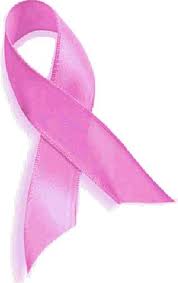 Researchers at UCLA's Jonsson Comprehensive Cancer Center found that the quality of life (QOL) in younger breast cancer patients is seriously compromised and these women often suffer from severe psychological distress, infertility, premature menopause, a decrease in physical activity and weight gain. The study found that the mental issues faced by younger breast cancer survivors were more serious than the physical impacts compared to a general age-matched population of women who didn’t have cancer and those more than 50 years old who did.
Researchers at UCLA's Jonsson Comprehensive Cancer Center found that the quality of life (QOL) in younger breast cancer patients is seriously compromised and these women often suffer from severe psychological distress, infertility, premature menopause, a decrease in physical activity and weight gain. The study found that the mental issues faced by younger breast cancer survivors were more serious than the physical impacts compared to a general age-matched population of women who didn’t have cancer and those more than 50 years old who did.
The study points to the need for oncologists to let these younger patients know from the beginning of their therapy what may happen to them after it’s finished, said study lead author Dr. Patricia Ganz, director of cancer prevention and control research at UCLA’s Jonsson Comprehensive Cancer Center. “We know that educating and providing younger breast cancer patients with information about what they might experience once their treatment ends is very helpful,” said Ganz, who has been conducting research on quality of life after cancer treatment for 25 years. “If they know what to expect, their anxiety level will be greatly reduced. Up to now, oncologists have not done a good job of preparing these women for what will come.”
Reducing anxiety is crucial, Ganz said, as pre-clinical studies have shown that stress can promote cancer growth and spread in animal models. A study by Jonsson Cancer Center researchers published in 2010 in Cancer Research showed that chronic stress acted as a sort of fertilizer that fed breast cancer progression, significantly accelerating the spread of disease. The need to prepare younger breast cancer survivors for any adverse effects they may experience and seek ways to address those problems is vital as more and more younger women are surviving their cancer diagnosis due to improvements in early detection and treatment, Ganz said.
“A cancer diagnosis can challenge younger women with issues that don’t impact older patients,” she said. “A younger breast cancer patient may have young children and may be worried about living to raise them to adulthood. A younger breast cancer patient may not have had children yet and may be faced with infertility following her treatment or may return to the dating scene following treatment. We need to find ways to reduce the stress and anxiety that dealing with these issues may create.”
For the Journal of the National Cancer Institute study, Ganz and her team did a review of studies that focused on overall quality of life, psychosocial effects, menopause and fertility-related concerns and behavioral outcomes related to weight gain and physical activity. The 28 studies reviewed were published between January 1990 and July 2010. Ganz said that weighing therapies with the thought of quality of life after treatment in mind may help reduce some of the issues these younger women face. “By tailoring adjuvant therapy regimens and giving cytotoxic therapy only to those who may benefit, we can mitigate some of these side effects, but the long life expectancy for these young women also provides a window of opportunity for cancer prevention and health promotion activities,” the study states.
Source: UCLA Newsroom

Comments